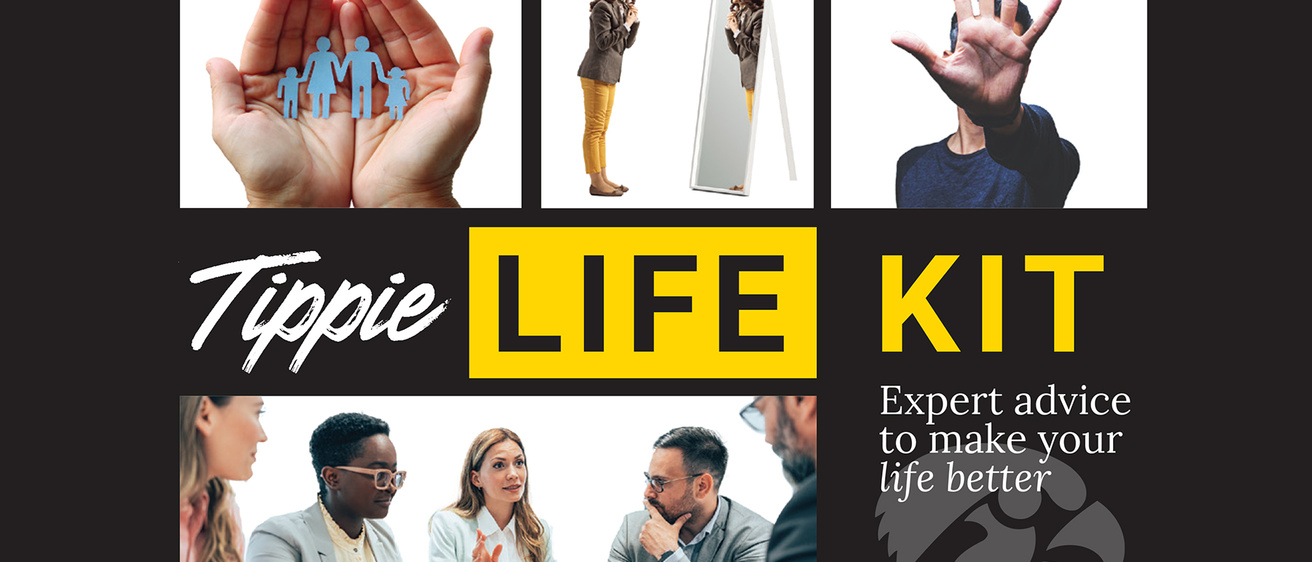Flip the Script on Imposter Syndrome

Expert: Rong Su
Pioneer Research Fellow and associate professor of management and entrepreneurship
“Imposter syndrome” refers to a pattern of thoughts and feelings in which an individual doubts their skills, talents, or accomplishments and fears being exposed as a fraud. It can happen even to highly competent and successful people. Break this cycle of irrational beliefs by reframing your inner dialogue to focus less on your emotions and more on growth opportunities. Instead of saying to yourself, “I am a fraud,” try saying, “I feel like a fraud right now, but these feelings are situational and are not permanent.” Also try asking, “What can I learn and what experience can I gain here at this moment? What opportunities are there to help my co-workers and contribute to my organization?” Focusing on self-development and ways to help others can provide relief from self doubts while increasing feelings of competence and belonging. This isn’t easy, and it will take intentional efforts to change your inner dialogue, but know that over time, things will change and you can harness imposter thoughts and feelings to fuel your performance.
Feel like an imposter sometimes?
Get tips on this topic and more from Tippie’s on-demand webinars!
Rethink Boredom at Work

Expert: Amy Colbert
Leonard Hadley Chair in Leadership and professor of management and entrepreneurship
Being bored at work is understandable, especially if you feel like your job doesn’t provide much purpose. But most every job makes an impact of some sort. One way to make your job more interesting is to focus on how it’s making a difference in peoples’ lives. This “cognitive reframing” helps prevent burnout by reminding people that their work has purpose and matters to people.
Manage Your Kids’ Social Media Use

Expert: Nick Westergaard
Lecturer of business communication and author of Get Scrappy: Smarter Digital Marketing for Businesses Big and Small
TikTok, Snapchat, and Instagram are all very different platforms with different rules—making some more age-appropriate than others. As a parent, it’s on you to become familiar with the different platforms and understand the rules of each when it comes to young users. Also, you may want to consider establishing expectations for your kids and family before they download an app. One of those expectations might be that you monitor their use and help them manage their account and privacy settings.
Master The Art of Negotiation

Expert: Michele Williams
Henry B. Tippie Research Fellow in Entrepreneurship and associate professor of management and entrepreneurship
Trust is key. Before the negotiation even begins, take time to get to know the people you’re working with and those you’re going to make decisions for, so they know you’ll make decisions in everyone’s best interest. Building trust also minimizes adversarial mindsets. Listening is also vital because it helps to build that trust and uncovers essential information. It allows you to get to know your negotiation partners better and learn their perspective so everyone can come away feeling it’s a win-win deal.
Set Your Kids Up For Financial Success

Expert: Erik Lie
Amelia Tippie Chair and professor of finance
Open a new 529 college savings plan as soon as possible after your child is born. Not only do the earnings grow tax-free to pay for college expenses, but a new law also allows up to $35,000 of it to be transferred to a Roth IRA later, sheltering that money (and its future growth) from taxation. As a result, even if your kids don’t use their entire fund to pay for college, they can use much of what’s left decades later in retirement. There are numerous conditions that must be met, of course, so check with a financial planner for the details.

HOT TIP:
The benefits of a 529 are so great that parents should consider setting one up for themselves even if they don’t plan to return to college, because the money could be converted to a retirement fund or passed down to pay their kids’ and grandkids’ college tuition.
Pick the Best Insurance

Expert: Richard Peter
Tristar Research Fellow and associate professor of finance
To get the best insurance policy, you should at a minimum maintain good credit and a clean driving record—but don’t sleep on all the discounts offered either. Make sure to take advantage of multicar discounts, discounts for defensive driving courses, and/or bundling discounts when purchasing auto and homeowners insurance from the same carrier. It’s also a good idea to shop around every year or two to make sure you are still getting the best deal. Consumers can also save on their premiums with policies that have higher deductibles, if they’re comfortable taking on more risk and have an emergency fund that can pay those deductibles if needed.
Handle the Office Bully

Expert: Yiduo Shao
Assistant professor of management and entrepreneurship
Bullying behavior of any kind is often rooted in stereotypes. Bullies make assumptions about you based on preconceived notions about your sex, age, etc., rather than how well you actually do your job. Putting a stop to bullying might require some assertiveness on your part. Say something like “that was uncalled for” or “this is disrespectful” to be clear you object. If the bullying behavior continues, document everything and take it to HR.
This article appeared in the Spring 2024 issue of Tippie Magazine.
